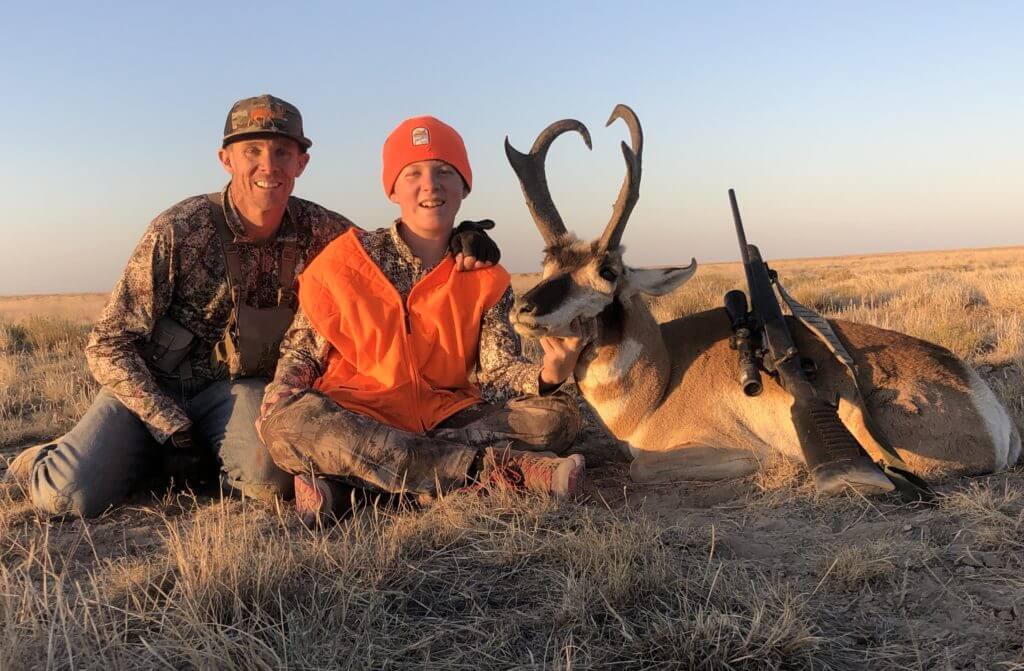
It wasn’t great news, but it wasn’t horrible. The crack ran horizontally along the head of the femur. Surgery would have to be done, but Dr. McNair was confident a trio of screws would do the trick.
“This is way better than it being a ligament or tendon,” McNair told my fourteen-year-old son Hunter. “Football is out for sure as is basketball, but I’m good at what I do, and I will have you ready for baseball. Crutches will be mandatory after surgery for three months.”
I could see the tears well up in his eyes. Hunter is a tough kid but no football — his favorite sport in life — was a little hard for him to swallow. I could see the wheels turning in his head as he sat on the examining table staring blankly at the x-ray and MRI images as McNair explained the surgery. It would be scheduled for early August, which meant he would be on crutches for his first big game hunt of the season.
“Guess we have to sit in a ground blind and shoot my pronghorn that way,” Hunter mumbled as he limped his way toward the parking lot.”
Hunter hates ground blinds. Hunter hates to sit still. I didn’t reply. I simply patted him on the back and helped him into the vehicle.
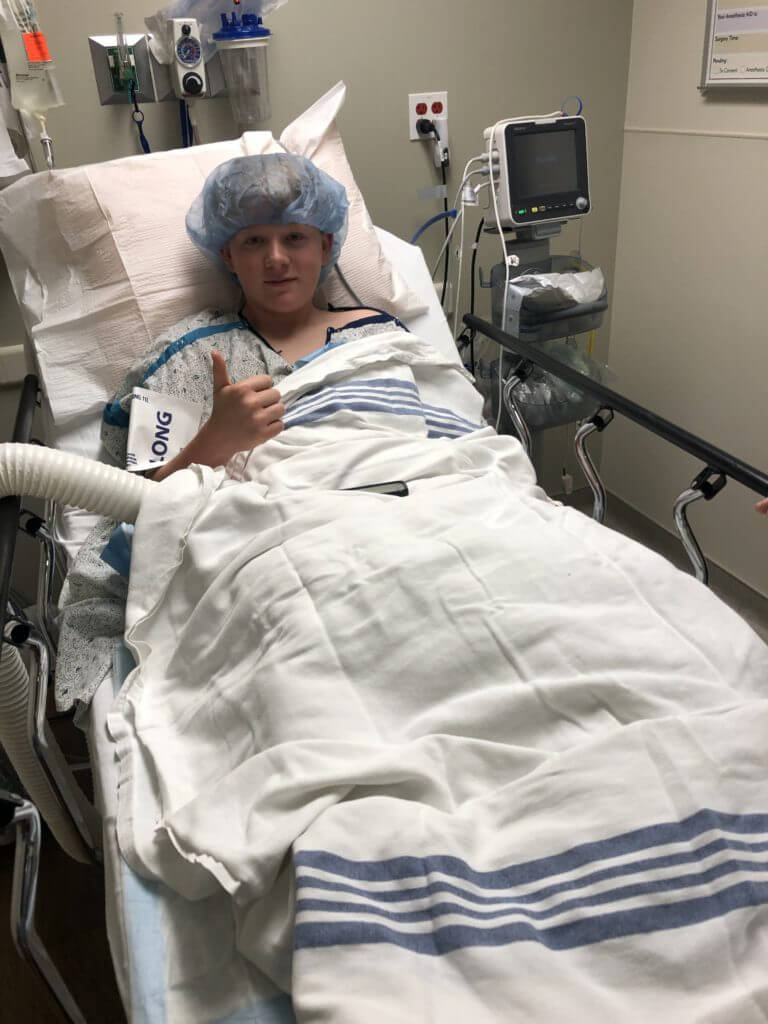
A Fast Healer
“You can almost straighten the leg fully and the swelling has resided almost completely,” McNair said during our two-week post-op appointment. “That’s pretty damn good.”
I love Dr. McNair. He is honest and confident in his abilities. He explained Hunter would still have to be on crutches for three months, but told him at eight weeks he would be 50 percent weight bearing on the leg. He also let him know he could start swimming and lifting his upper body.
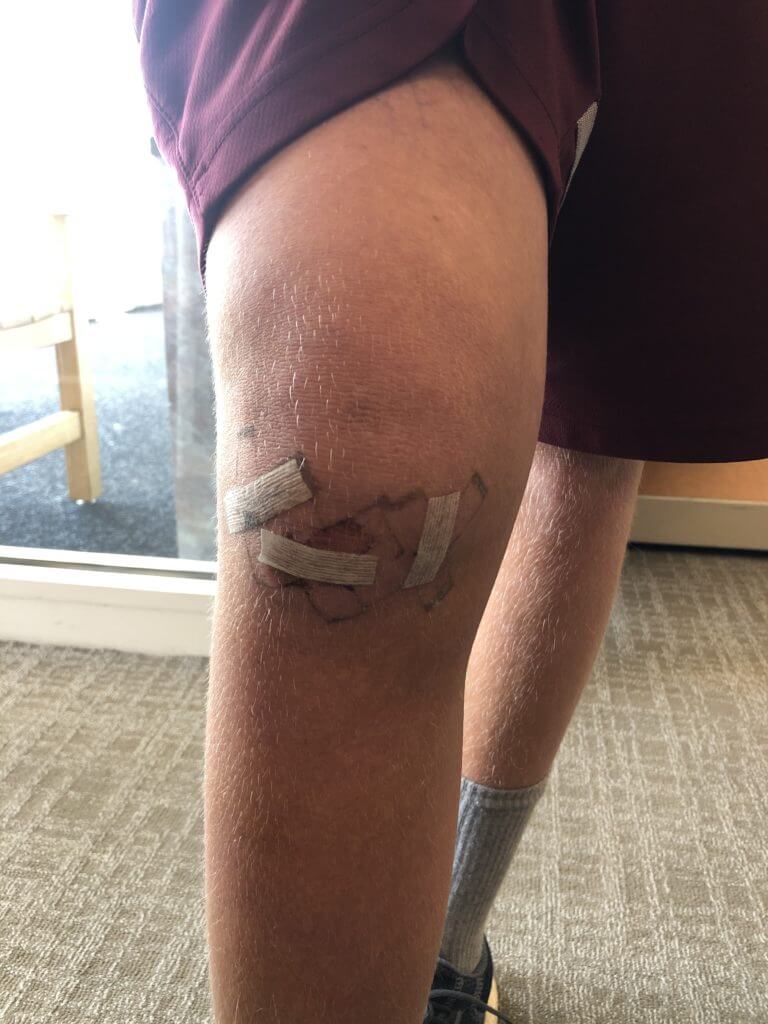
Hunter had a little pep in his step when we left the office that day. It was mid-August and the boy simply started hammering the second we got home. Side of lifting weights, which he loves to do, he started swimming with my wife three times a week. He was getting stronger and was able to move on his crutches at a much faster pace.
Staying True
When McNair told Hunter at his six-week appointment that he could put 50 percent of his weight on his leg, I knew the ground blind was out. He was going to spot and stalk. I suggested he shoot my .270 Win. Short Mag. to increase his effective range. He simply said, “No.”
Three years ago, he’d saved his pennies and purchased a Savage .243 Model 11. The gun came as a combo and was topped with a simple Nikon 3×9 variable scope. That year he killed his first pronghorn. The following season he dumped a pronghorn at 323 yards with the rifle as well as a beautiful eight-point whitetail at 264 yards.
“Dad,” he said with confidence in his voice. “This is my rifle and I want to kill my buck with it. We just need to spend some extra time at the range. I know the gun will perform at 400 yards, and I really believe even on crutches we can get that close. I just need to shoot more at longer distances.”
So, we did. For the next four weeks, Hunter sent lots of lead downrange. He kept his original sight-in — two inches high at 100 yards — but shot lots of rounds at 300 and 400 yards.
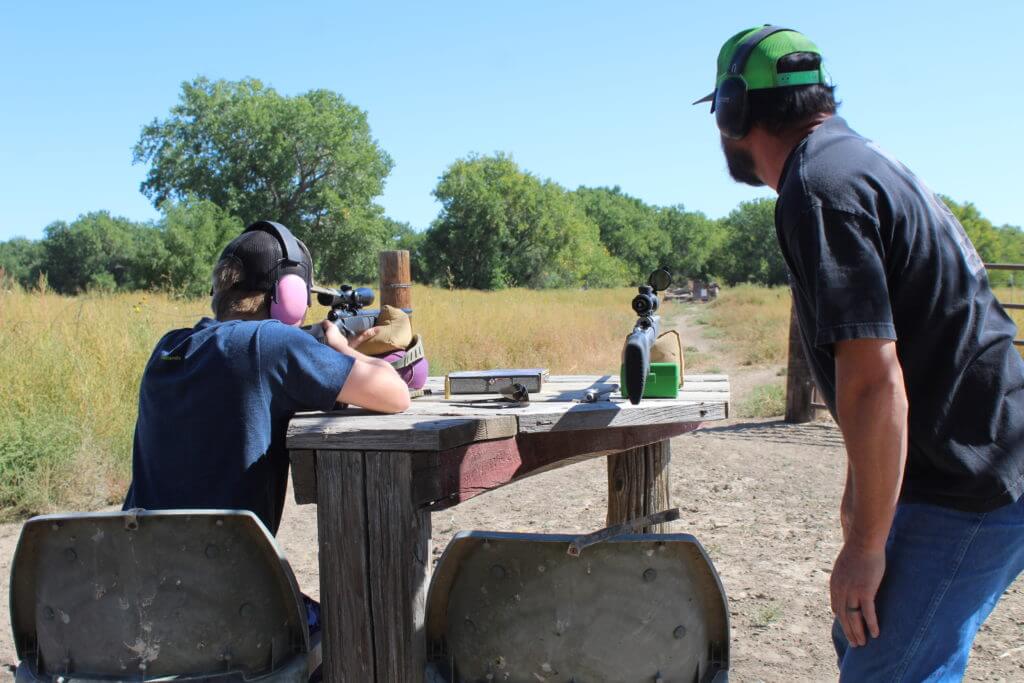
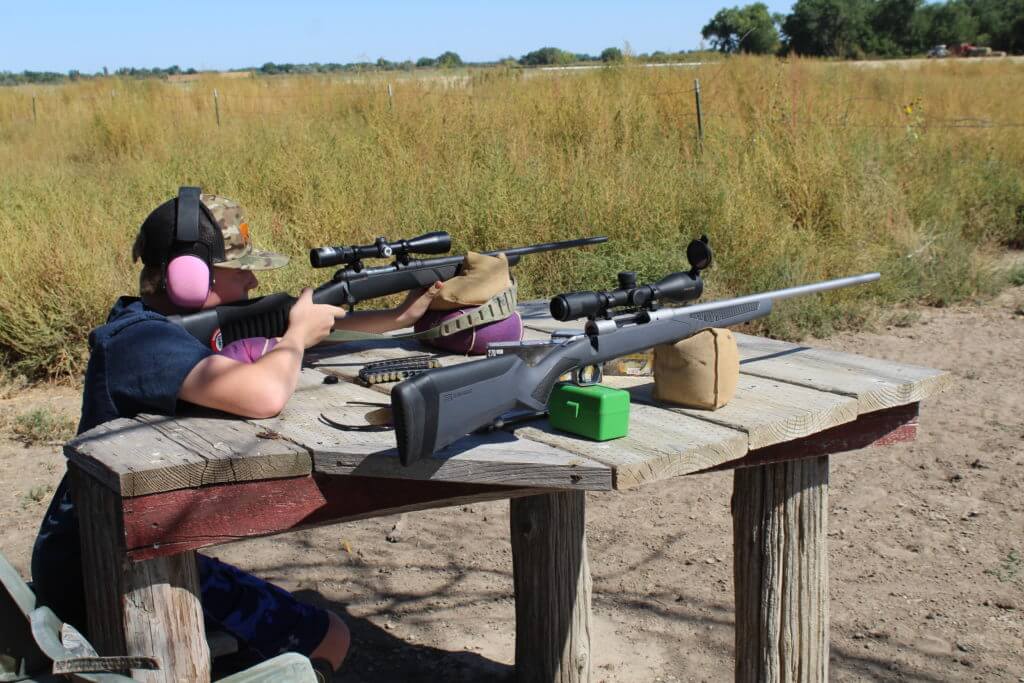
A Lofty Goal
Days before the season, Hunter came to me after dinner with a goal he had set.
“Dad, I want to kill the booner,” he told me.
Let me back up a bit. We don’t have many Boone & Crockett bucks that roam our little slice of the prairie. We knew of one. He was a giant I’d glassed up during archery season but simply couldn’t get on. I probably should’ve hunted the buck harder, as he was the biggest buck I’d ever seen in the area, but when a respectable buck watered 20 yards from my ground blind, I triggered my release.
I explained to Hunter how lofty his goal was. I explained that we might not even find the buck. He didn’t care. He simply said, “Well, I’ve worked really hard, and it’s him or nothing at all. I will be just fine if I don’t kill a buck. I just want to hunt him.”
Yes, it was a proud dad moment, but deep in my heart, I knew the chances of even finding the buck were slim. I hadn’t seen him in weeks.
Holy Cow!
We’d spent four hours driving and glassing. Quality optics are a must when hunting the open prairies. We’d park and pick areas apart slowly with our 12-power binos, then I’d set up my spotting scope and comb each locale again. We found plenty of bucks, but not the one Hunter wanted.
We were talking about stopping and making lunch when I spied a lone doe in the distance. An all-alone-doe is rare during early October, so I pulled out the Nikon spotter and went to work. I turned up 18 more does — all bedded in the shade of tall sagebrush — then my glass locked on horns.
It was him. There was no doubt. His ebony tower looked too big for his body. The buck and his does were over three-quarters of a mile away and the cover between us and them was sparse. Our best plan was to stay patient behind our glass.
Over the course of the next two hours, the buck ran his does hard. In addition to keeping an eye on the rutting activity, I also kept an eye on the outside temperature. It was hot. Knowing where the closest water was, I told Hunter our best plan of attack was to get between the herd and the water source.
The approach was long — two miles to be exact — but a deep drainage provided good cover. Occasionally, I would crawl to the top of the drainage and glass the herd. Other than the buck chasing does in a large circle, they didn’t move much.
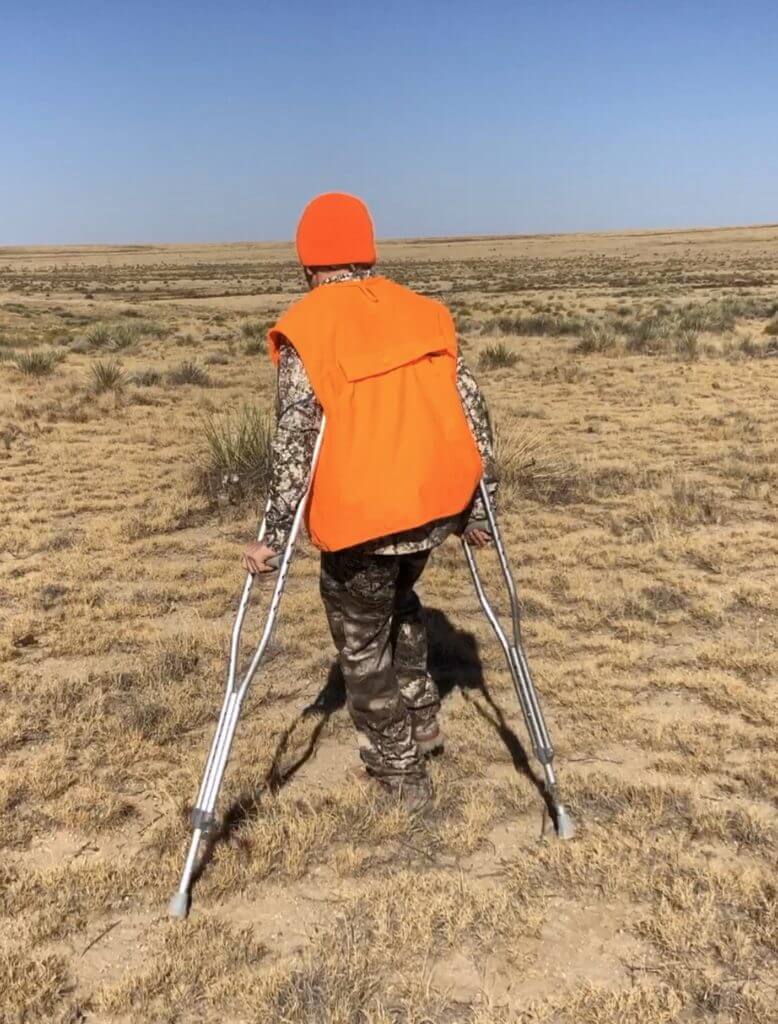
It was just after 5 p.m. when I got Hunter settled on a small rise. We could see the herd over 600 yards away, but we’d made a great move and put ourselves in a position to be successful. Hunter was tired but didn’t complain once, even when we had to crawl a few hundred yards to reach his shooting perch.
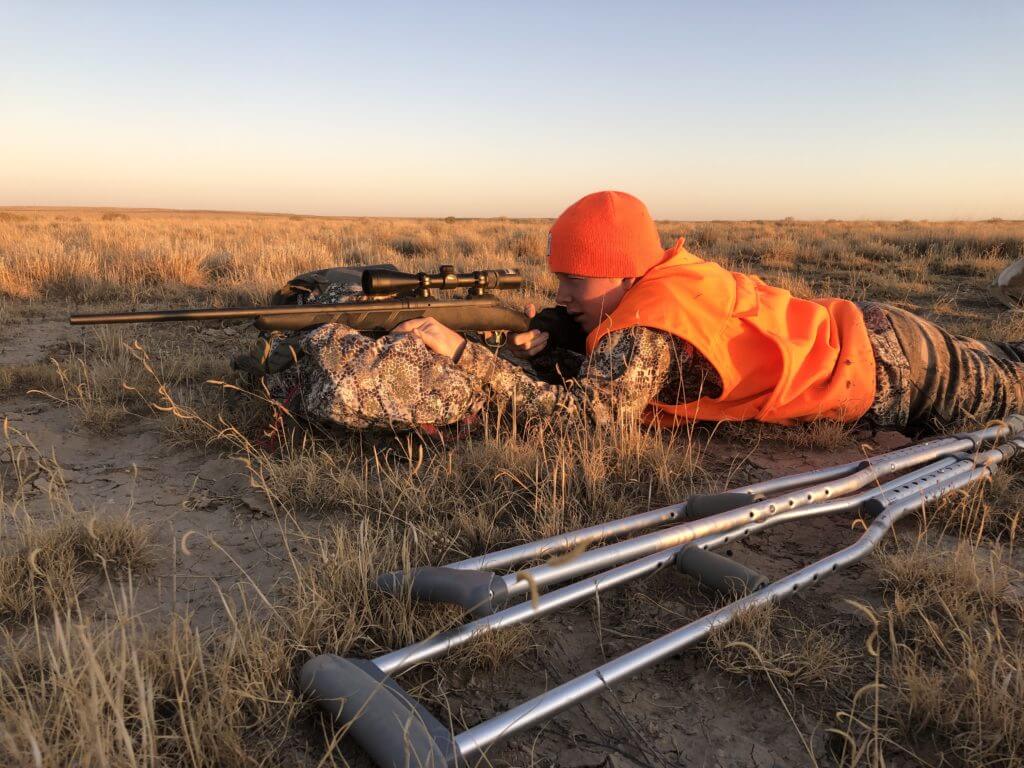
I got him prone, which I always recommend if possible, and used my backpack to support the rifle. He was dead steady. At 6:20 p.m., the buck started pushing his does right at us. It was clear they were headed to water. A few mouths were wide open, and the gate of the entire herd was steady. At 464 yards they veered off course a little. Hunter wanted to take a shot, but I advised him to stay patient. We’d played every move perfectly. There was no reason to do something stupid now. Our patience paid off once again. The does turned and resumed their march in our direction. The buck stopped broadside at 223 yards and the rifle thundered. The wallop of the bullet exploding the heart was clear, and after taking a few steps the giant tumbled to the ground.
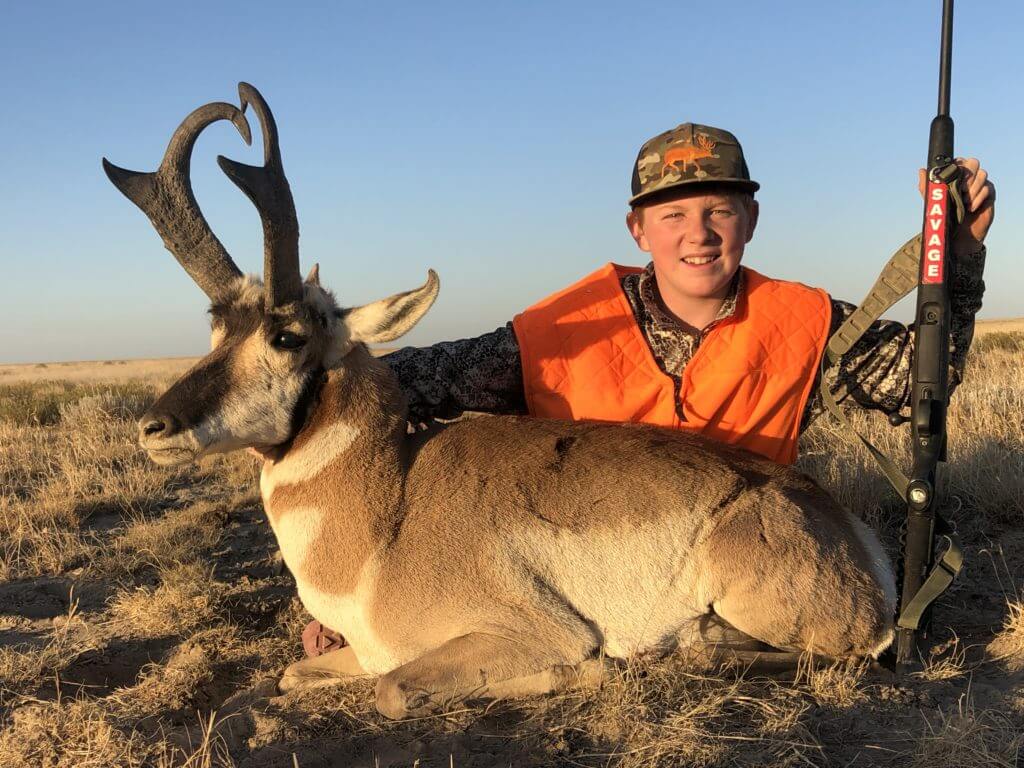
Hunter is usually pretty calm. Not this time. He sat up and fell into my arms yelling, “Dad, Dad, I love you so much. Thanks so much for taking me.”
It was a special moment to be sure, and one neither of us will ever forget. As a dad, I couldn’t have been prouder. Hunter had overcome a lot and worked very, very hard. Not only on the hunt but in the weeks leading up to the hunt. It was a labor of love cleaning that buck and packing it off the prairie for my son.
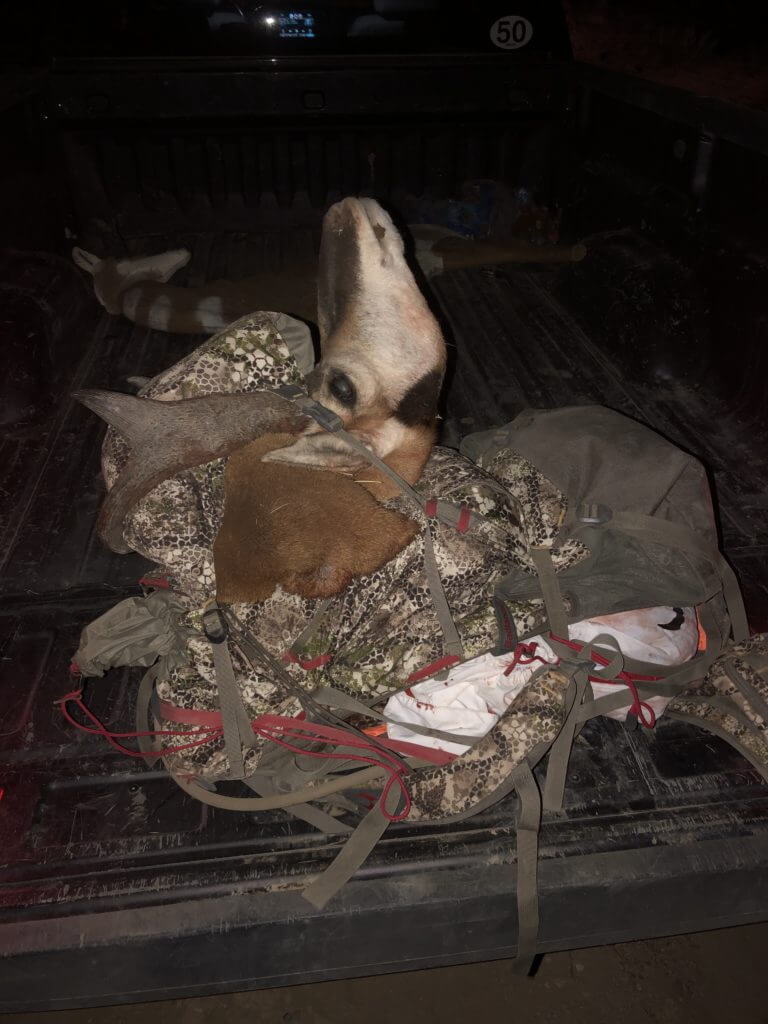
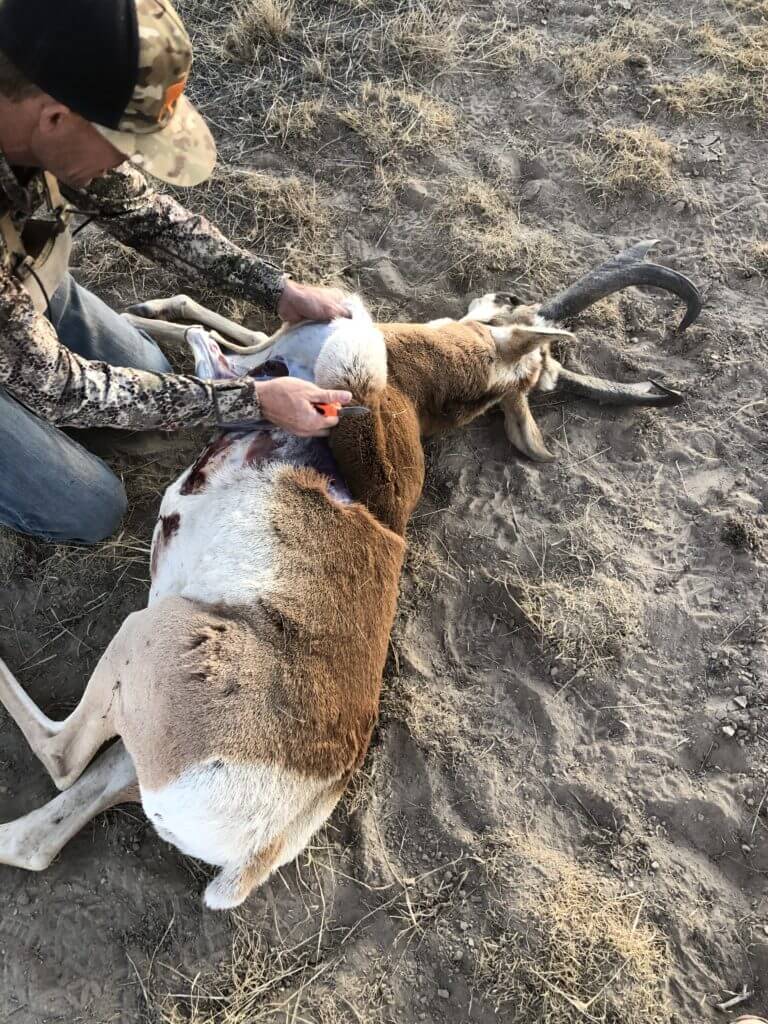
There’s nothing like spending time outdoors with your kids. If you remember nothing else from this story, that’s fine with me, so long as you remember this last paragraph. Have a great season.
Additional Photos
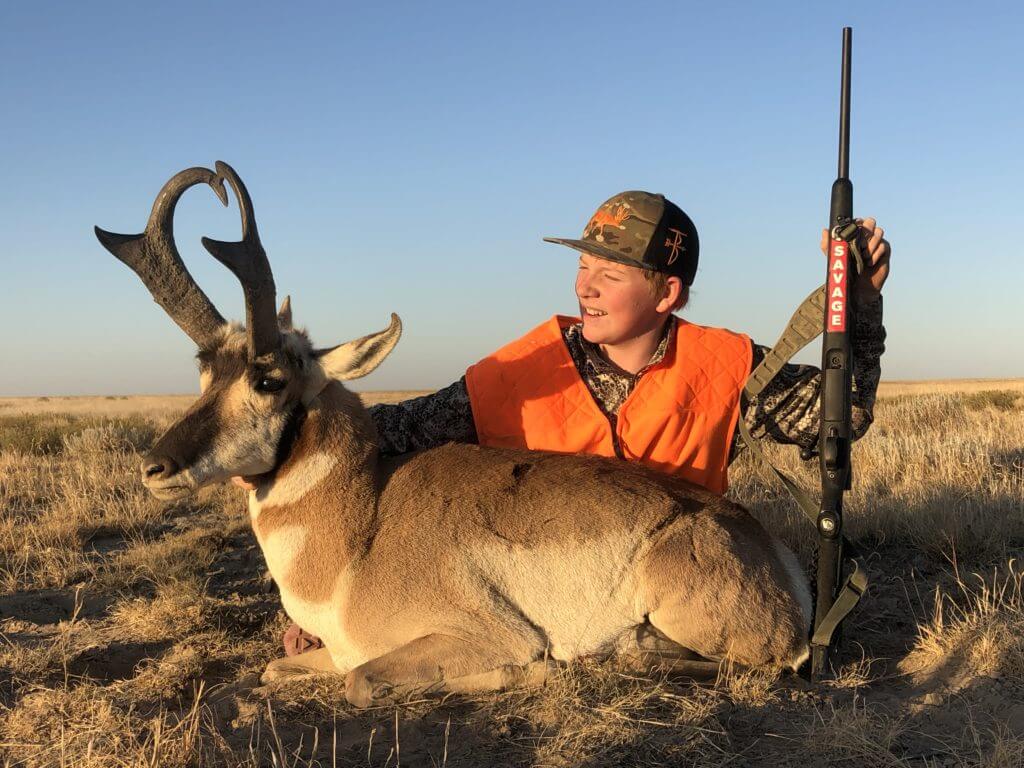
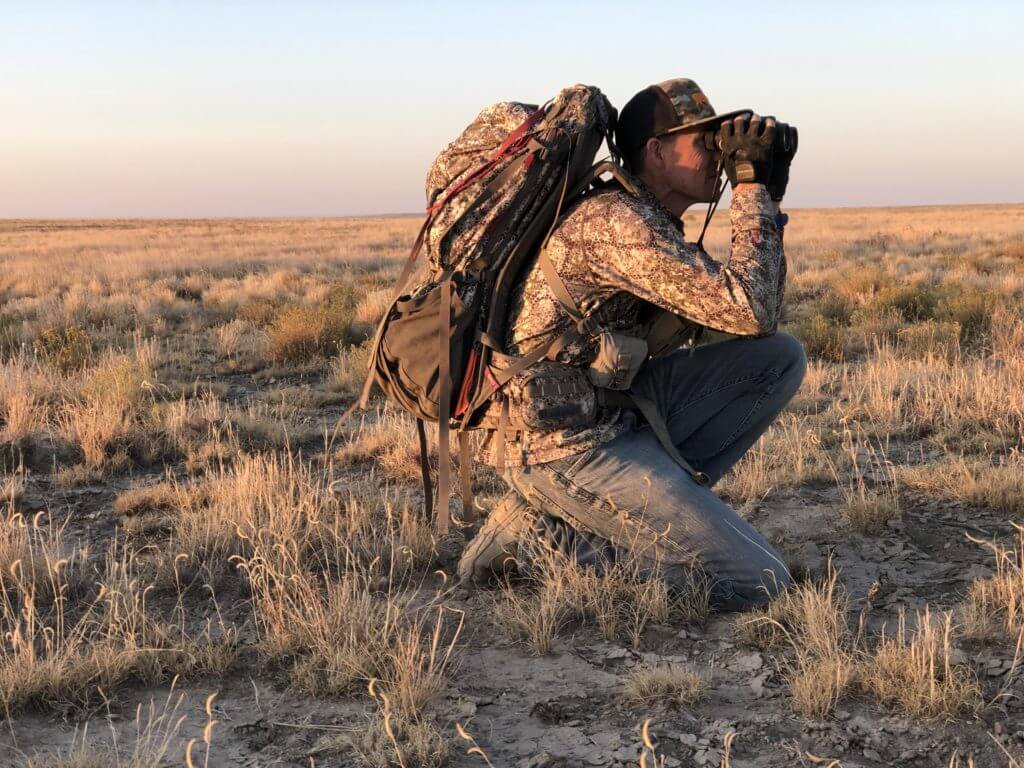
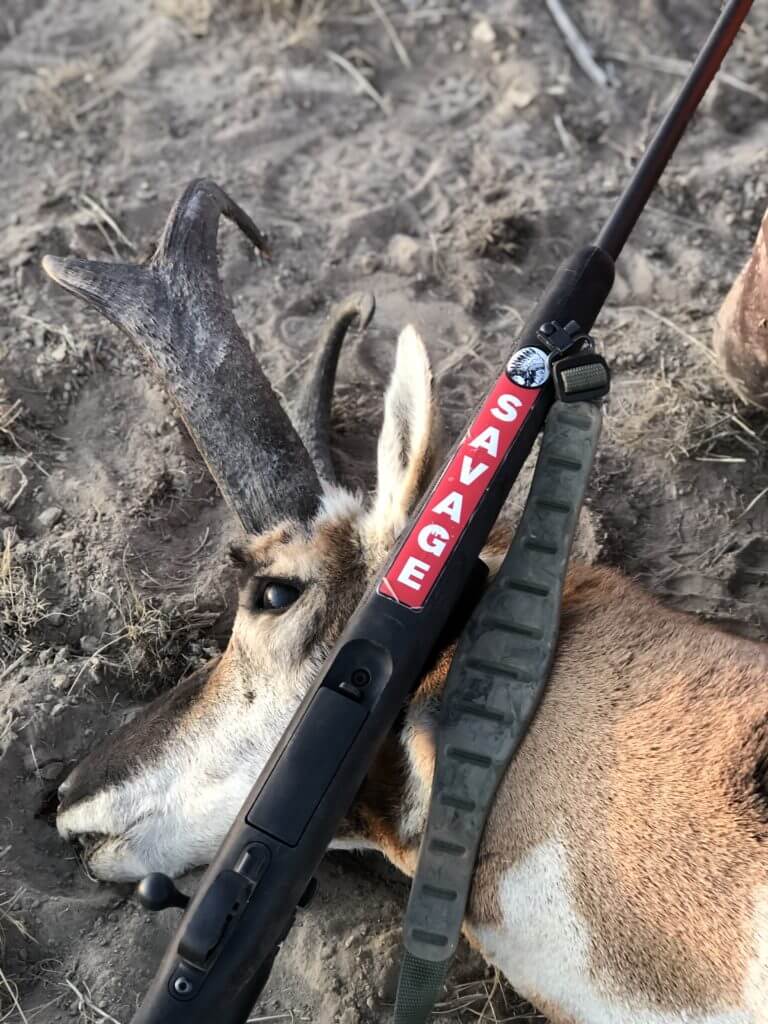
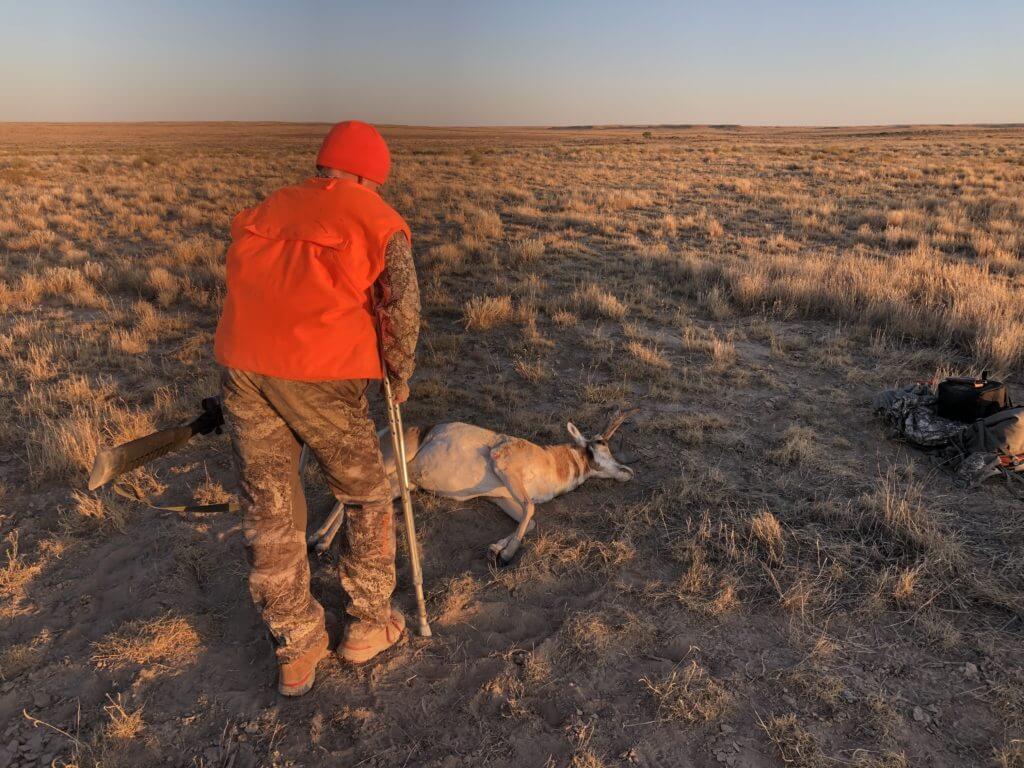
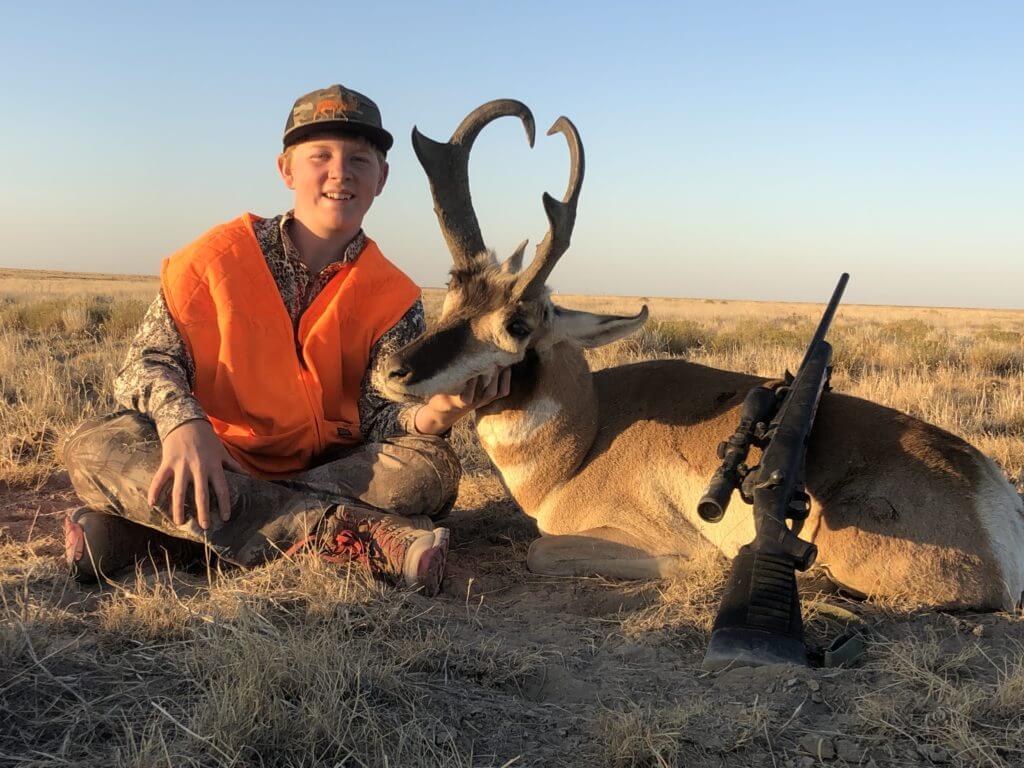
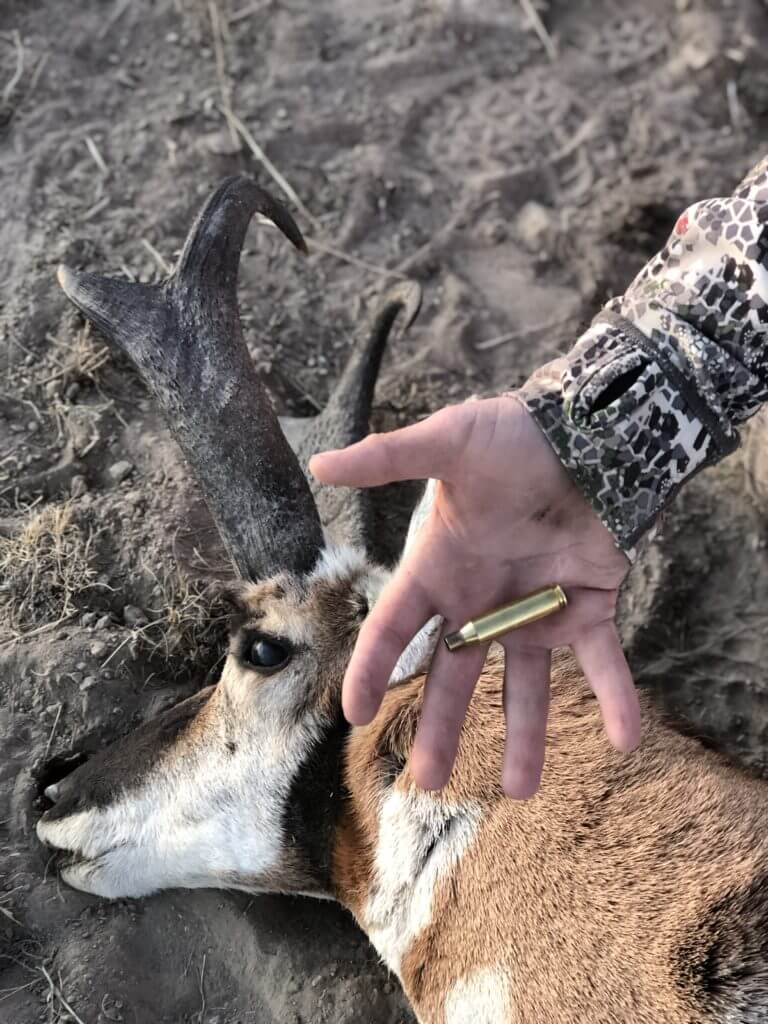


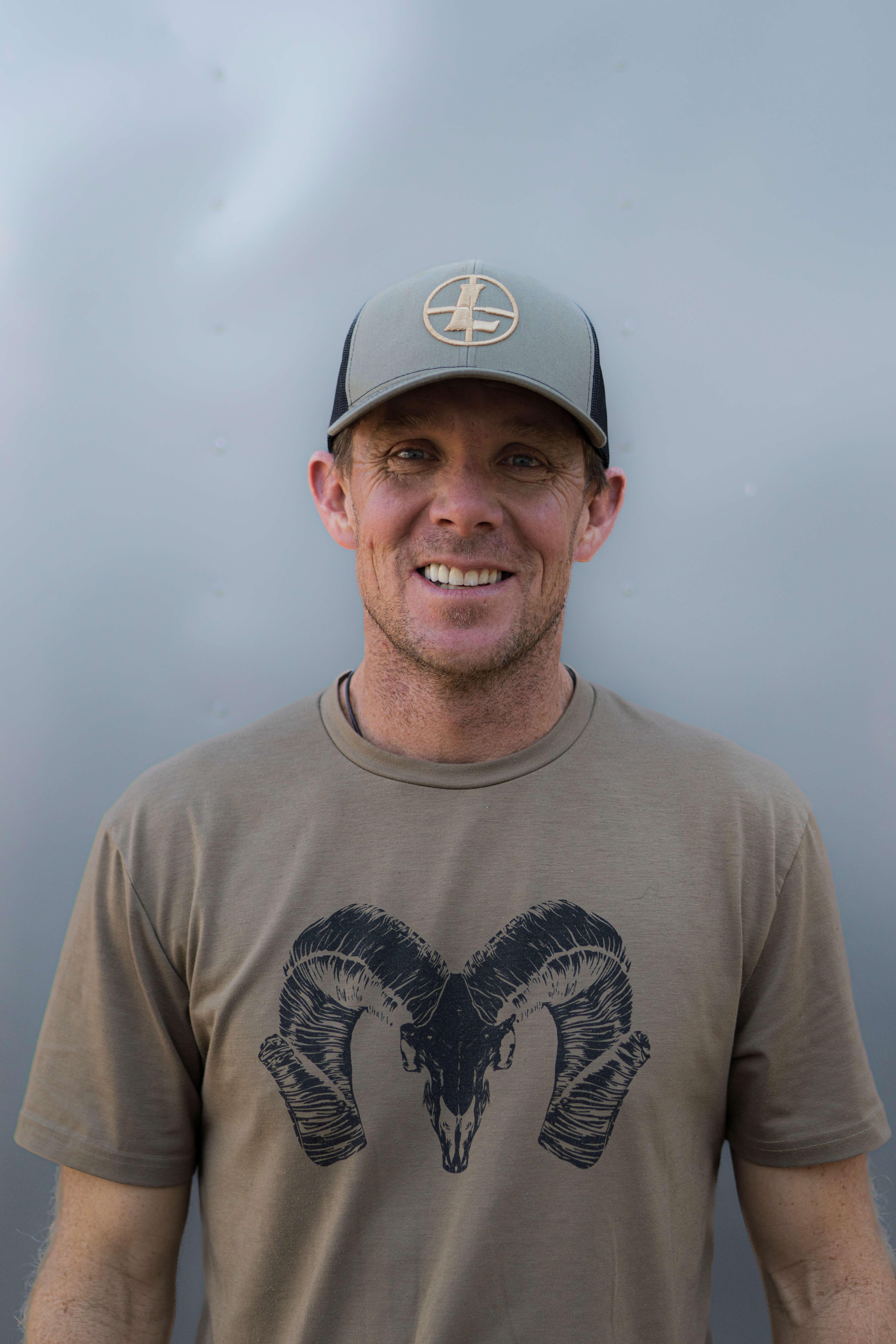
Keep that boy in school as long as you possibly can and do not let him get married until he is a least fourty!!!!!
Guaranteed success and a long career in shooting sports.
God bless you…both!!!